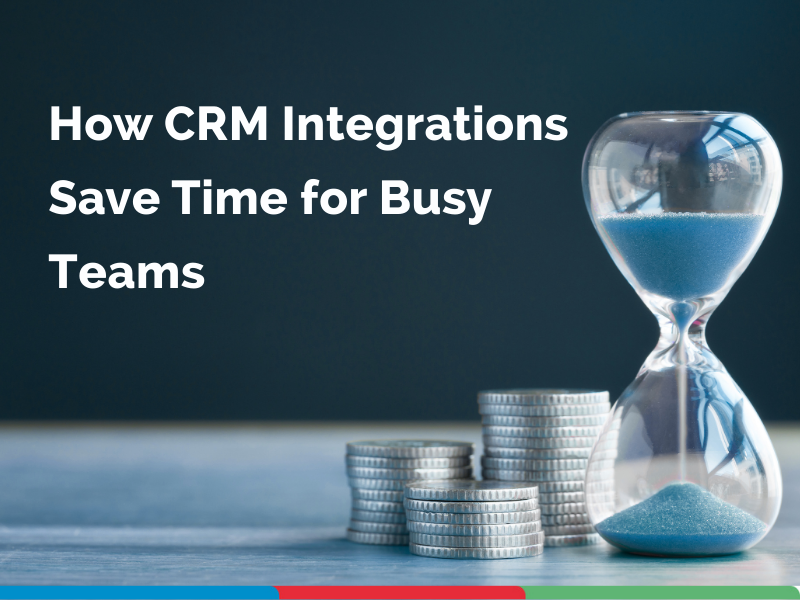If your business relies on multiple tools like email, project management apps, and accounting software, you’ve probably felt the drain of switching between platforms. That constant switching costs precious time and creates unnecessary risk. The solution is simple: connect your tools with your CRM once and let workflows run automatically.
In this post, we explain the hidden cost of disconnected tools, what CRM integration looks like in action, how common tools tie into your CRM, and how much time you can actually save. We’ll also show how Digital Socius can manage this for you so your team focuses on meaningful work instead of repetitive admin.
The Cost of Disconnected Tools
Using separate tools for sales, billing, email, and task tracking may seem flexible. But every time someone pastes a detail from an email into your CRM or copies an invoice into a spreadsheet, inefficiencies creep in. Research by the Harvard Business Review on workplace multitasking shows that frequent tool-switching significantly lowers productivity.
Many teams struggle with:
-
Data duplication and inconsistent records
-
Untracked email communications
-
Manual task entry and missed follow-ups
-
Delayed reporting because finance or CRM data does not sync
-
Employee frustration from repetitive administrative work
Manual processes can cost hours each week per person. Multiply that by your team size and it adds up quickly. On top of that, manual steps often lead to errors, miscommunication, and missed opportunities.
People also read this: Why Cloud-Based CRMs Are the Future of Business Growth
What CRM Integration Looks Like
When tools are integrated, your CRM becomes the central hub of your operations. A single action, like submitting a form or closing a deal, can automatically trigger updates and tasks in other connected tools.
Here’s how a typical integration works:
-
A web form or email capture creates a new contact or lead in the CRM
-
A new lead triggers a task assignment and email sequence
-
When a deal is marked won, it launches tasks in your project management tool or accounting software
-
Signed documents are automatically linked to the contact or deal in the CRM
-
Invoice and payment statuses sync between your accounting software and CRM
-
Emails and calls log automatically to the contact’s timeline in the CRM
These steps happen in the background once the system is set up. No need for copying, pasting, or chasing updates. According to Gartner’s CRM integration insights, businesses with integrated CRMs report higher efficiency and customer satisfaction.
Common Tools to Connect with CRM
Many popular tools can be integrated with Zoho CRM and other platforms, creating smooth workflows and eliminating manual entry.
Email and Calendar (Gmail, Outlook)
-
Syncs email conversations and attachments to contact records
-
Links calendar events and sends automatic meeting reminders
Payment and Accounting Software (QuickBooks, Xero, Zoho Books)
-
Creates invoices when deals are marked won
-
Updates CRM with payment status and financial history
Marketing and Automation Platforms (Zoho Campaigns, Mailchimp)
-
Adds leads from marketing campaigns directly into CRM
-
Tracks engagement and links campaign performance to deals
For a deeper look at how Zoho competes in marketing and CRM automation, see our post on Zoho CRM vs Salesforce: Which CRM is better for your Business in 2025?
Signing and Document Tools (Zoho Sign, Dropbox Sign, DocuSign)
-
Automatically attaches signed agreements to records
-
Updates statuses based on signing progress
Project Management Tools (Zoho Projects, Trello, Asana)
-
Pushes client details into project boards upon deal closure
-
Creates onboarding and task lists for internal teams
Web Forms and Chat Tools (Typeform, Jotform, Intercom)
-
Captures user inputs and logs them as CRM leads or tickets
-
Sends automated follow-up emails or alerts based on form entries
These connections remove bottlenecks and help service-based teams operate more efficiently.
The Time-Saving Payoff
Setting up integrations may feel like a big step at first, but the benefits compound quickly. Teams that connect their tools to CRM often experience:
-
Hours saved per week for each team member
-
Fewer errors and more accurate client records
-
Faster response times and follow-up
-
More reliable reporting across departments
-
Less stress from switching tools and repeating tasks
For example, a consulting firm using Zoho CRM, Zoho Projects, and Zoho Sign reduced admin workload by 30 percent and improved project delivery times. A creative agency connected its billing and CRM tools and cut its client onboarding process from five days to just one.
Let Digital Socius Handle the Integration
Integrating your tools with your CRM requires proper planning, configuration, and support. That is where we come in.
At Digital Socius, we help UK-based teams using Zoho CRM get the most out of their tech stack:
-
We assess your current tools and identify opportunities to integrate
-
We map out your key workflows and design efficient automation flows
-
We use Zoho Flow, APIs, or third-party apps to connect systems
-
We test every integration to make sure it works in the real world
-
We train your team on how to use and maintain the system
-
We offer support to update and scale as your business grows
With us, you get more than just connections between tools. You get a smarter system that improves over time and gives your team more room to focus.
Final Thoughts
Disconnected tools cost time, accuracy, and employee motivation. CRM integrations solve these problems by connecting the apps you already use, automating workflows, and putting your team back in control.
For operations managers and business owners juggling multiple platforms, the right integration setup can turn your CRM into a true engine of productivity.
Ready to save time with Zoho CRM integrations? Let Digital Socius help you build a better system that works harder for your team.
